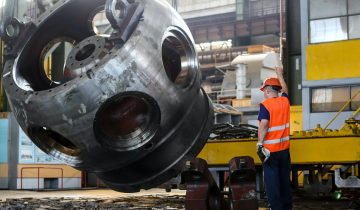
Understanding the Fuel System: A Comprehensive Guide
May 24, 2023 by: Jeniza Olarita
The fuel system is an essential component of any internal combustion engine, responsible for delivering the right amount of fuel to the engine for combustion. Whether you’re a car enthusiast or simply a curious individual, this blog aims to provide a comprehensive understanding of the fuel system, its components, and its functioning. So, let’s dive into the world of fuel systems and explore how they work!
- Fuel System Overview: Begin by explaining the purpose of the fuel system and its role in the overall functioning of an internal combustion engine. Discuss the primary functions of the fuel system, such as storing, filtering, pressurizing, and delivering fuel to the engine.
- Fuel System Components: a. Fuel Tank: Describe the fuel tank and its importance as the primary storage for fuel. Discuss the various types of fuel tanks, materials used, and safety features incorporated in modern designs.
b. Fuel Pump: Explain the role of the fuel pump in pressurizing the fuel and delivering it to the engine. Discuss the different types of fuel pumps, including mechanical and electric pumps, and highlight their advantages and disadvantages.
c. Fuel Filter: Highlight the significance of the fuel filter in removing contaminants from the fuel before it reaches the engine. Discuss the types of fuel filters, their maintenance requirements, and the potential consequences of neglecting them.
d. Fuel Injectors: Elaborate on the fuel injectors’ function, which involves precisely spraying fuel into the engine cylinders for combustion. Discuss the different types of fuel injectors, such as port fuel injectors and direct fuel injectors, and their impact on engine performance and fuel efficiency.
e. Fuel Pressure Regulator: Explain the role of the fuel pressure regulator in maintaining a consistent fuel pressure within the system. Discuss its importance for optimal engine performance and fuel efficiency.
- Fuel System Types: a. Carbureted Systems: Provide an overview of carbureted fuel systems, explaining how they mix fuel and air before delivering it to the engine. Discuss the pros and cons of carburetors and their historical significance in automotive engineering.
b. Electronic Fuel Injection (EFI) Systems: Discuss the evolution of fuel systems from carburetors to electronic fuel injection. Explain the operation of EFI systems, including sensors, electronic control unit (ECU), and their benefits such as improved fuel efficiency, power, and reduced emissions.
- Common Fuel System Issues and Maintenance: a. Fuel System Maintenance: Offer tips and guidelines for maintaining a healthy fuel system, including regular fuel filter changes, fuel injector cleaning, and using high-quality fuel.
b. Common Fuel System Issues: Address common fuel system problems like fuel pump failures, clogged injectors, and fuel leaks. Provide troubleshooting tips and advice on when to seek professional assistance.
- Future Developments in Fuel Systems: Discuss emerging technologies and trends in fuel systems, such as direct injection systems, hybrid fuel systems, and alternative fuels (electricity, hydrogen). Highlight their potential impact on efficiency, performance, and environmental sustainability.
Conclusion: Summarize the key points covered in the blog and emphasize the importance of a well-maintained fuel system for optimal engine performance, efficiency, and longevity. Encourage readers to stay informed about the latest advancements in fuel systems and appreciate their role in shaping the future of transportation.
Remember, understanding the fuel system is crucial for any vehicle owner or aspiring automotive enthusiast. By gaining knowledge about its components and functioning, you’ll be better equipped to maintain your vehicle and make informed decisions about fuel-related matters. Happy exploring!



